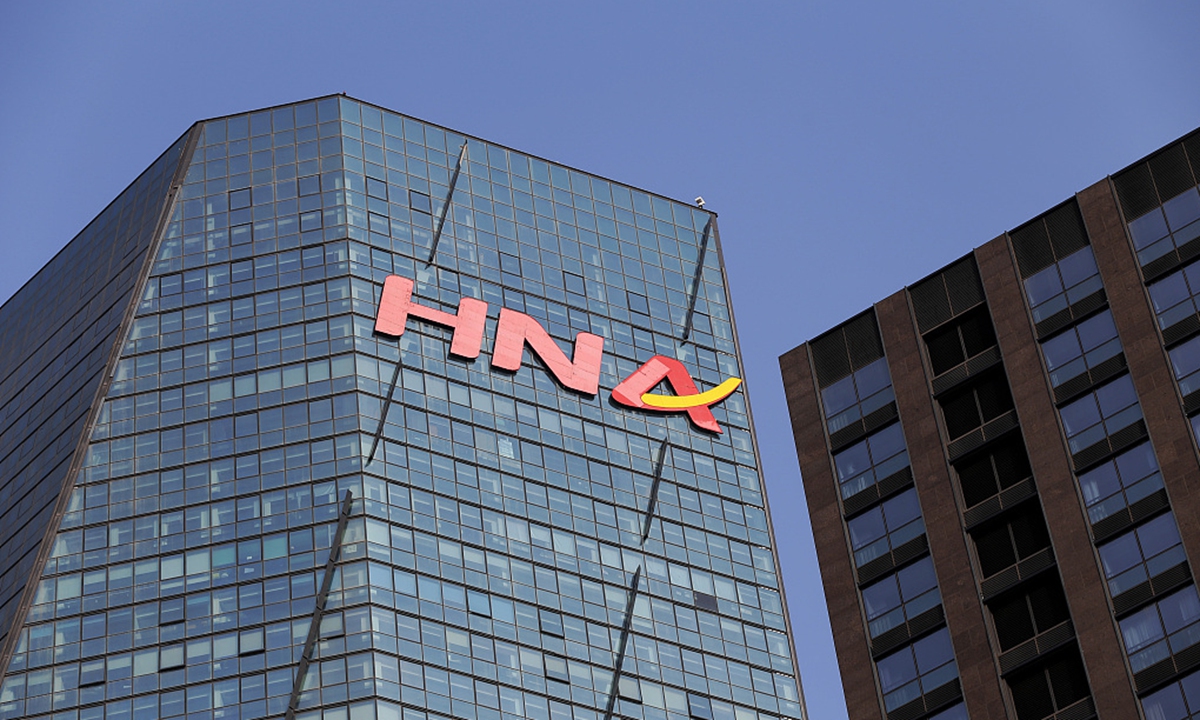
Photo: CFP
One of China's largest conglomerates, HNA Group, on Friday declared bankruptcy and restructuring after a multi-year debt and liquidity crisis, according to the company on Friday.
The company was informed by South China's Hainan High People's Court on Friday that "because the company is unable to pay off its debts, related creditors appealed to the court for the company's bankruptcy and restructuring," read the announcement.
HNA Group said it will cooperate with the court for judicial review, carry forward the debt disposal, and support the court's protection of the legal rights of its creditors so as to ensure the smooth operations of the company.
The move came after the change of the company's top executives on January 22. A Hainan provincial government-led working group also finished due diligence at the company and drew up risk disposal plans the same day.
Once an aggressive dealmaker that spent extravagantly to buy stakes in notable foreign assets like Hilton Worldwide Holdings and Deutsche Bank, HNA Group, the owner of Hainan Airlines, started to save itself by selling some of its assets after a liquidity crisis gripped the company in 2017, focusing on its airline and tourism businesses, media reports said.
After years of debt and liquidity together with the coronavirus pandemic which plagued tourism and disrupted the aviation sector, HNA failed to deal with risks thoroughly. It then sought the help of the local government, according to the company.
The local government of Hainan Province last year stepped in and established a working group with other agencies to help solve HNA's financial woes, the company said in February 2020.
In a statement on HNA's WeChat account on Monday, the company said that risk disposal work is gradually being carried out, but the "severity of risks" must be given high attention.
HNA Group owns more than 2,300 companies, media reports said.
As of June 2019, HNA Group's total assets were worth 980.62 billion yuan ($151.77 billion) with its gross liabilities hitting almost 706.73 billion yuan, according to financial news site eeo.com.
On Thursday, Chinese Securities Regulatory Commission head Yi Huiman said the commission would strictly supervise companies' delisting and encourage them to expand multiple exiting methods, such as expanding reforms, reorganizing the enterprise and taking the initiative to leave the market.
Yi said the regulatory body will strengthen day-to-day supervision on listed companies and intermediary organs to optimize the market ecology.




